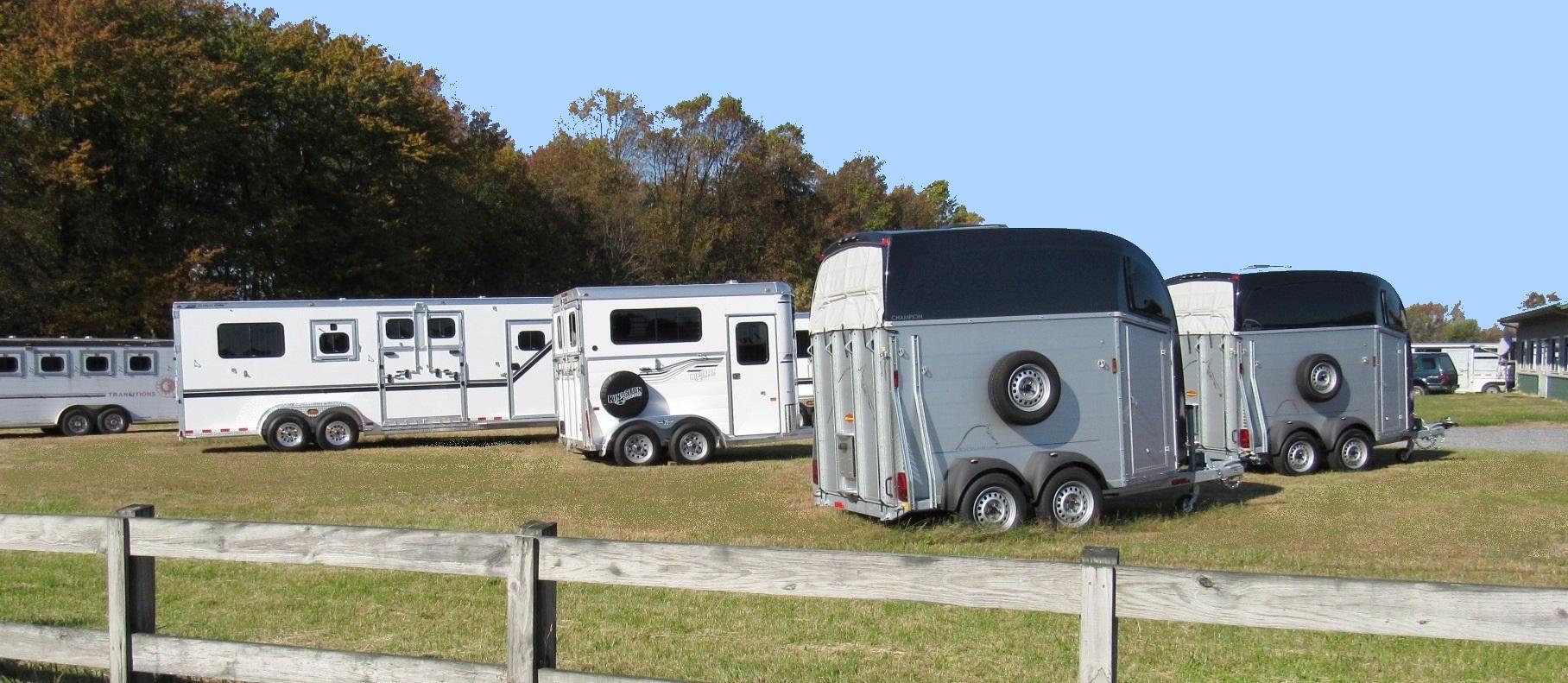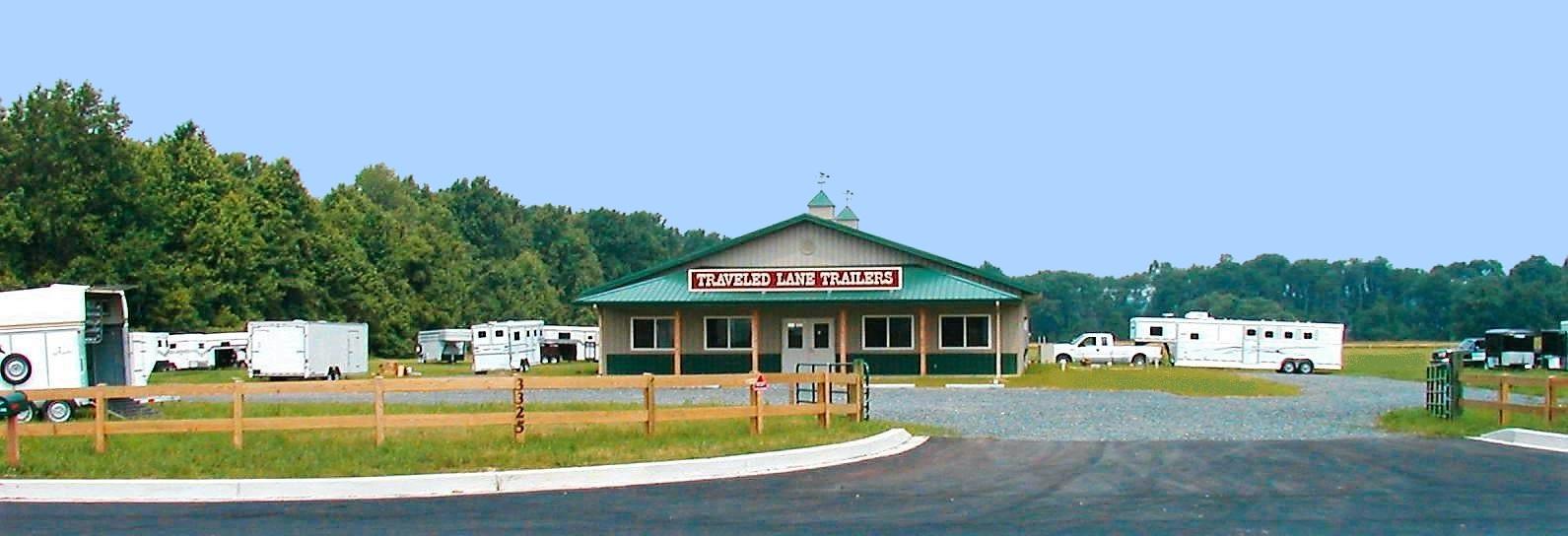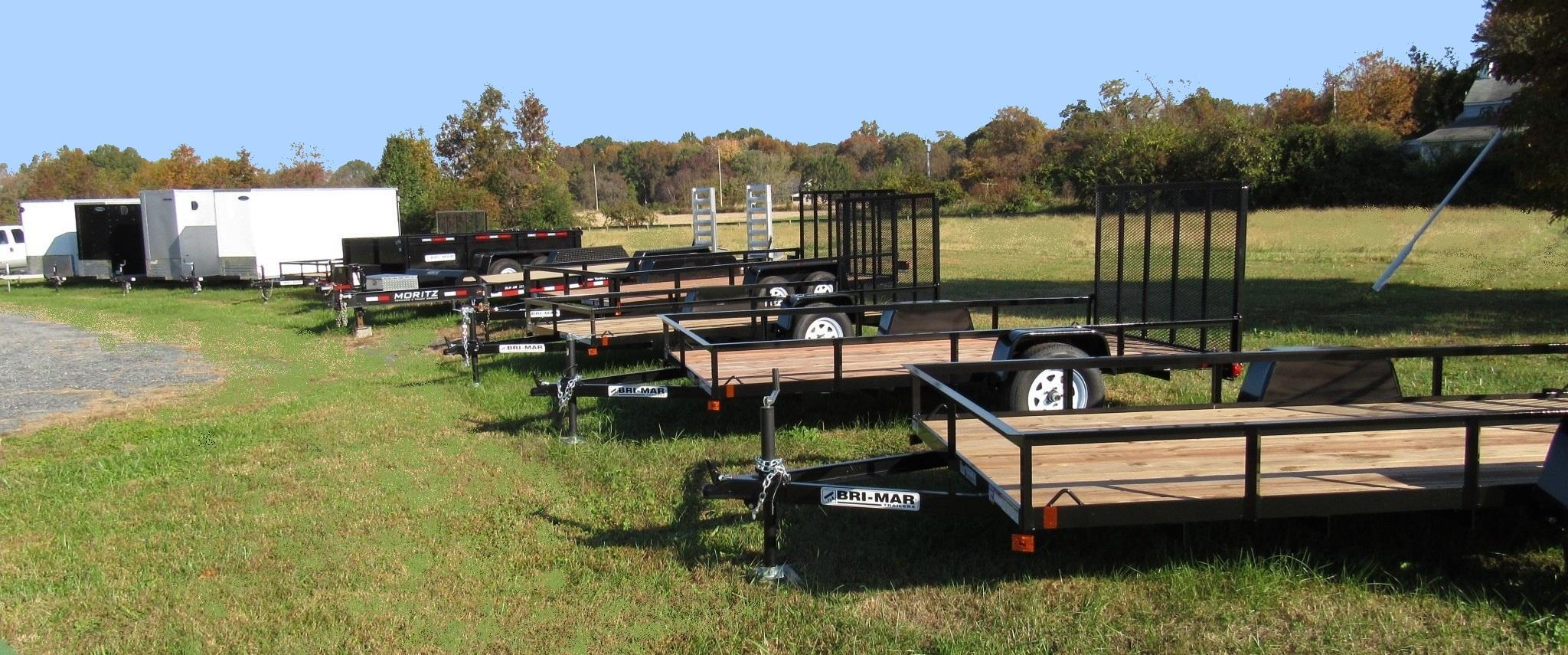
TRAILERING 101

Part I: What Can My Vehicle Tow?
Disclaimer: Please refer to the manuals of
tow vehicle, trailer and hitch for recommended operating procedures and
limitations before use and/or purchase.
When we started this months article we had intended to cover
the pieces and parts that make up a hitch. We get these questions
alot, and we find that folks are very uncomfortable with the situation
because they really do not understand what they need or require. As we
proceeded with the article we realized that the hitch is secondary to the
fundamental question of, What can my vehicle tow? After all, the
trailer you choose should fall within the vehicles towing parameters and
thus the hitch is selected to accommodate the trailer. (If you have a
smaller tow vehicle you may wish to read our article on the
Brenderups).
Where to begin. We would like to be able to tell you
to just simply ask your dealer, but we have been around too long to give you
that answer. Sometimes it can be almost that easy. We have found that
certain vehicle manufacturers are very specific about the towing
capabilities of their vehicles.One that comes to mind is Toyota. Their SUV
and light truck sales brochures were very specific, if you buy this vehicle
with this equipment this is the tow capacity and this is the maximum
tongue load. Sometimes you may have to dig a little deeper
into the actual manuals, an example would be the Land Rover Discovery its
manual is very specific as to towing capabilities. In high gear you
can tow this much, in low gear this much with a maximum tongue load
of "xxx". If buying new, our biggest advice is DO NOT take
a salespersons' word for it, ask them to show it to you in writing.
What if it's an older vehicle then what? If you
are absolutely unsure of the situation some folks have taken their Vehicle
Identification Number (Vin#) and called the manufacturer, not a dealership,
the manufacturer. Based on the vin# they can tell you how your vehicle
is equipped and most times give you a definite answer as to towing
capability. Another option may be the tag located on the frame of the
vehicle inside the driver's door. We know many trucks have manual
pages dedicated to towing and in conjunction with the information on your
frame sticker you should be able to at least figure out what equipment your
truck has. Once you get this information there are then charts which
indicate what your vehicle can tow. Be warned however, sometimes these
numbers are not straight forward and a call to the manufacturer may be
helpful.
Some general interest items.
1) A mistake alot of folks make is that they base the towing capacity
of their vehicle on the numbers stamped on the hitch that has been
installed. Hitches are rated in classes with weight ranges and do not
indicate the actually towing capability of the vehicle. Basically hitch and
vehicle are two independent entities.
2) There are at least three items which determine towing capacity:
engine size, rear end gearing ratio and transmission type, automatic Vs
manual. On some smaller tow vehicles the addition of extra engine
cooling, transmission coolers, and beefed up suspension is also not unheard
of. Usually you will find these types of items included in what has
commonly been referred to as a "towing package". One item about
transmissions, if you are considering or have a smaller tow vehicle with
a manual transmission look carefully at the towing numbers. We have seen
situations where "like" vehicles have had 1/2 to 2/3 the recommended towing
capacity of their automatic counter parts. This is more prevalent in
the lighter vehicles, when you move to the "heavy duty" work vehicles we
have not noticed this type of variance. Whatever the vehicle, verify
the towing numbers.
3) Maximum tongue load: We emphasized
this word earlier because it can make a difference in your ability to pull.
Tongue load refers to the amount of weight that the trailer puts on your
bumper or hitch area. The generally accepted rule of thumb for
domestic built horse trailers is 10%. We have seen estimates
ranging from 9%-15% but 10% is most commonly referred to. What that
means is, if you have a trailer weighing 2400lbs, (2) 1,000lb horses for a
total of 4400 lbs., you should expect to have somewhere in the neighborhood
of 440 lbs. sitting on your bumper. Most often when you look at the
specs of American built, or "Americanized foreign" vehicles you will find
that the maximum tongue load recommendations are usually 10% of
their total towing capacity. If they are not, further investigation
may be required. One vehicle that comes to mind had a towing capacity
of 5000lbs but only a tongue load of 350lbs. This could be a potential
problem. There is something called a "weight distribution unit" which
transfers the weight from the bumper area to the axles of the vehicle and
the result is a lightened tongue load. If you decide to embark on an
adventure of this type, please read all information for tow vehicle, and
hitch carefully, and keep in mind some vehicle manufacturers do not
recommend the use of weight distribution units. This type of
information should be in the manual. If not, start asking, this is not
a situation where you want to assume anything.
As we all know for every rule there is usually an exception. To read about
one exception you may want to glance at our
Brenderup article. These trailers are from Europe where small tow
vehicles and big horses are the norm and therefore their trailers are
designed & engineered to accommodate that style of towing.
4) Amongst the many considerations required for a
gooseneck we would like to add one which is sometimes over looked.
Consider you truck bed length. We always recommend an 8 foot
bed. Simply because turning can be very distracting with the neck of
the trailer only coming within inches of some extend cabs. We
have customers who have been down this road and will strongly agree.
If you plan to buy a truck with less than an 8 foot bed, please shop wisely
for a trailer, you may spend the rest of your life driving straight :). If
you plan to buy a really wide trailer, as an example some living quarters
and slant loads, you may want to consider this even if you have an 8 foot
bed.
5) GVW - Gross Vehicle Weight. We realized after
reading this article several times, that none of this will help you if you
are not aware that trailers have a GVW associated with them. A GVW is
the maximum amount a trailer can weigh with its cargo. GVW is usually
based on the axle capcity i.e. a trailer with two 2500 lb axles will have a
GVW of 5000lbs to accomodate both trailer weight and cargo weight.
This is a simple example and the formulas for manufacturers to compute GVW
are much more complicated as we understand it. Why did we tell you this,
simple, it is usually our recommendation that once you figure out the towing
capacity of your vehicle you then want to find a trailer with a GVW which
falls within that capacity. There are some exceptions to the rule,
like european trailers, but when you are dealing with light tow
vehicles and domestic built trailers we are
pretty firm on this point.
This article has generally come from the perspective of
"I have a vehicle and what will it tow?" In a prefect world where
money would not be an issue, you would select your dream trailer, then buy
the perfect tow vehicles with all the bells and whistles. But most of us
live in reality and have to make do with what we have. This can sometimes
leave us facing decisions of "need Vs. want Vs. safety..." We are sure
most if not all of you are like us at TLT, safety is first, decision made.
Happy Trailering... See you Next Month. (Or whenever
we feel like something needs to be said.)
If you have any comments, suggestions
or topics for a "Trailering 101" article we'd be happy to take them.
Trailering education is our goal.
 |


